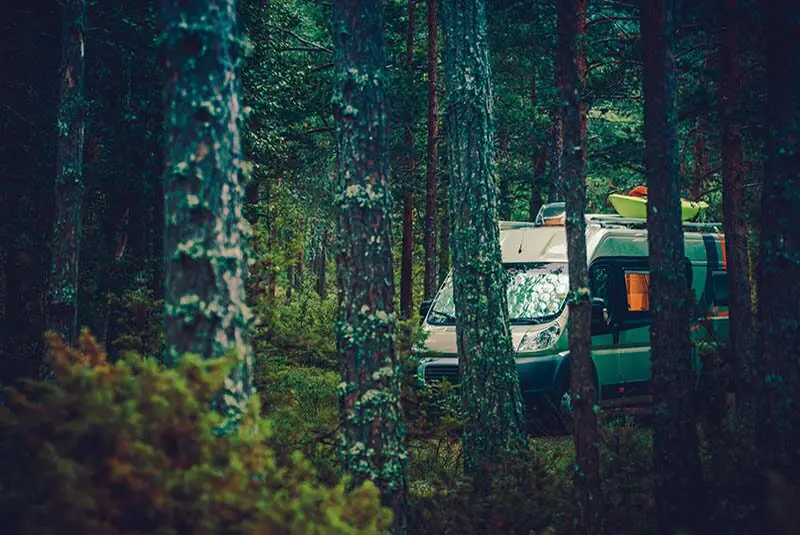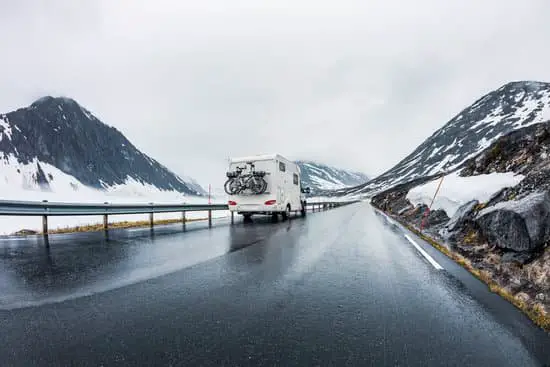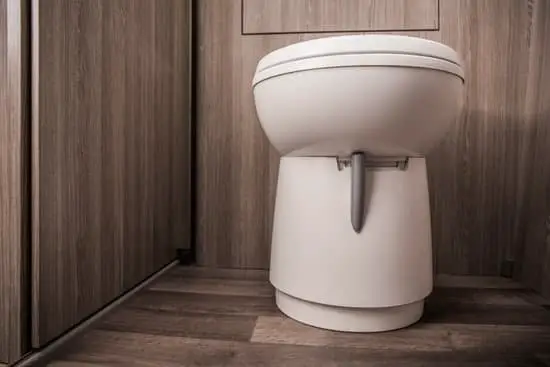7 Tips to Renovate Your RV for Boondocking
Boondocking is more challenging than regular camping, but it’s not impossible. With a few upgrades, preparing your RV for an enjoyable off-grid stay is easy.
Generally, water and water management are ultimately the constraining resources when dry camping. Therefore, we shall focus our discussion on these two.
Water Supply
The three different aspects to keep in mind regarding the RV water tanks are:
- Freshwater
- Gray water
- Blackwater
Fresh Water
Having a large supply of freshwater is crucial when boondocking. To extend your dry camping stay, you must be creative with the freshwater tanks.
There’re plenty of options to increase the capacity of your freshwater in an RV.
For example, if your RV allows, you could install an extra fresh tank on your RV’s underbelly. But remember, tanks mounted outside are likely to freeze during winter.
You could also add a secondary freshwater tank to your truck bed and use it to transport water to your boondocking location.
And if you prefer not to relocate or move your RV, you could just replenish your water. The big water jugs, gallon containers, and collapsible water bladders will help.
Gray Water
Disposing of gray water is probably the biggest water management challenge when boondocking and if you’re like most boondockers, chances are the gray tank is always the limiting factor to your stay.
Regulations for the dumping of gray water vary by state. Some will allow you to dump your gray water into raw land, while others don’t.
My philosophy, however, is you should never disrupt nature if you can help it. I’m usually disappointed to see much internet advice saying, “dump gray water on grass,” or “let it drip slowly like a leak,” and other errant advice.
I believe in LNT principles and would suggest you try to avoid dumping any waste into the ground.
Consider getting a portable tank. Empty laundry detergent bottles from the laundromat work for me. They hold my gray water and allow me to transfer the gray waste water to a separate tank for disposal while my rig stays stationary.
Black Tank
The black tank is one of the most difficult RV tanks to deal with when boondocking because there’s no option of dumping waste into the ground.
Fortunately, you could use some handy tricks to dump your blank tank.
One of my favorite methods is removing the blank tank altogether. The benefit of this is that it creates extra space for freshwater and gray-holding water tank.
When you remove the black tank, you need to replumb your RV system with a cassette or composting toilet. I’m a big fan of composting toilets with urine diversion.
The second option is doing a septic tank if you plan to stay in one location for a long. Before it gets full, you can call your septic tank service, and they suck it for you. For a fee, of course!
You could also get auxiliary tanks, which you can fill from the blank tank, and then empty and clean at a sanitation station.
I also know a friend who leases a Porta Potty on their boondocking trips. Representatives from the Porta Potty company then flush out weekly for a monthly fee. It’s not the greatest form of disposal, but an option I’ve seen done.
Most RV parks and truck spots also have dump stations and hookups for waste management. If you’re boondocking in a new location and are unsure whether there’re dump locations around, you could use sanidumps.com. It’s painful to look through the ads, but it provides a comprehensive list of all RV dump stations.
Water Management
The trick to RV tank disposal boils down to proper water management. RV water efficiency is key.
Of course, water management may also depend on your limits. For example, we’ve no problem showering 2/3 times a week while off-grid. Not everyone is okay with doing that, and it’s understandable. But more showers mean more work hauling water and more water for disposal.
Dishes are the other thing you must control to some extent. While some RVers consider it an extravagance, having a dishwasher for boondocking is essential. Our dishwasher is water efficient and saves a ton of water while boondocking. It also makes boondocking more homely.
A trash grabber wand is crucial and will help you thoroughly clean up your immediate area.
Power Supply
Along with RV water tanks and water supply, the power is the other big item to address for boondocking.
The ideal power requirement depends on what amenities you need and how much you want to cut back on some extras.
I wouldn’t put a figure on your power requirements. It took us three seasons to find our sweet spot- 600ah of lithium batteries and 800w of solar.
My advice is to take your time and evaluate your needs before spending $$$$ on a huge power system. You might just be fine with two small batteries and a generator, or you may want more.
[amazon bestseller=”duel fuel generator” items=”2″]
[amazon bestseller=”solar power bank” items=”2″]
Other Boondocking Renovations
Compressor
A good compressor is hardly discussed, yet it’s way up in must-haves for RV boondocking.
See, real boondocking involves plenty of off-road travel. Outside the major cities, there’re swaths of the area to boondock off beaten paths, many with fire roads.
The rutted-out paths can be hard on the RV and the occupants. One of the best things you can do to soften the ride and avoid bouncing and shaking apart the trailer is airing down the tires. Airing down the RV tires also keeps the tires from punctures and point lads.
The air down should be conservative to 70% of the pressure you normally use on gravel or concrete surfaces.
To air down, one has to air up, which is a reason to have a good compressor. You should clamp it on the battery post so it has sufficient performance to air up the RV tires reasonably.
[amazon bestseller=”portable air compressor” items=”2″]
Heat and Fire Source
Propane is usually the go-to fuel source for most RVers, but eliminating it would be a good idea if you’re determined to stay off-grid.
There’re plenty of other dry camping-friendly fire sources, such as wood. However, eliminating propane may not be feasible if you plan to grill or cook with gas.
[amazon box=”B00DMICFQ4,B09P4DRB5S”]
Tip
This comes from a practical angle.
An RV experience is the best way to determine what upgrades you need for boondocking. Remember, your boondocking needs are highly personal and may evolve.
I suggest you schedule a mock off-grid camp session and see if you can manage.
Start your trial dry-camping in friendly grounds such as campgrounds without amenities. Hang around, and this will inform you about which areas you should pay attention to and get clarity about things you don’t need.
Finally, you must remain flexible and adapt!






